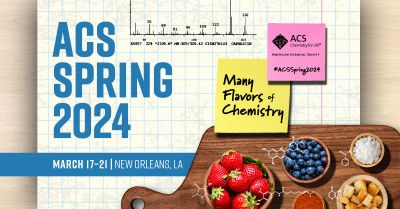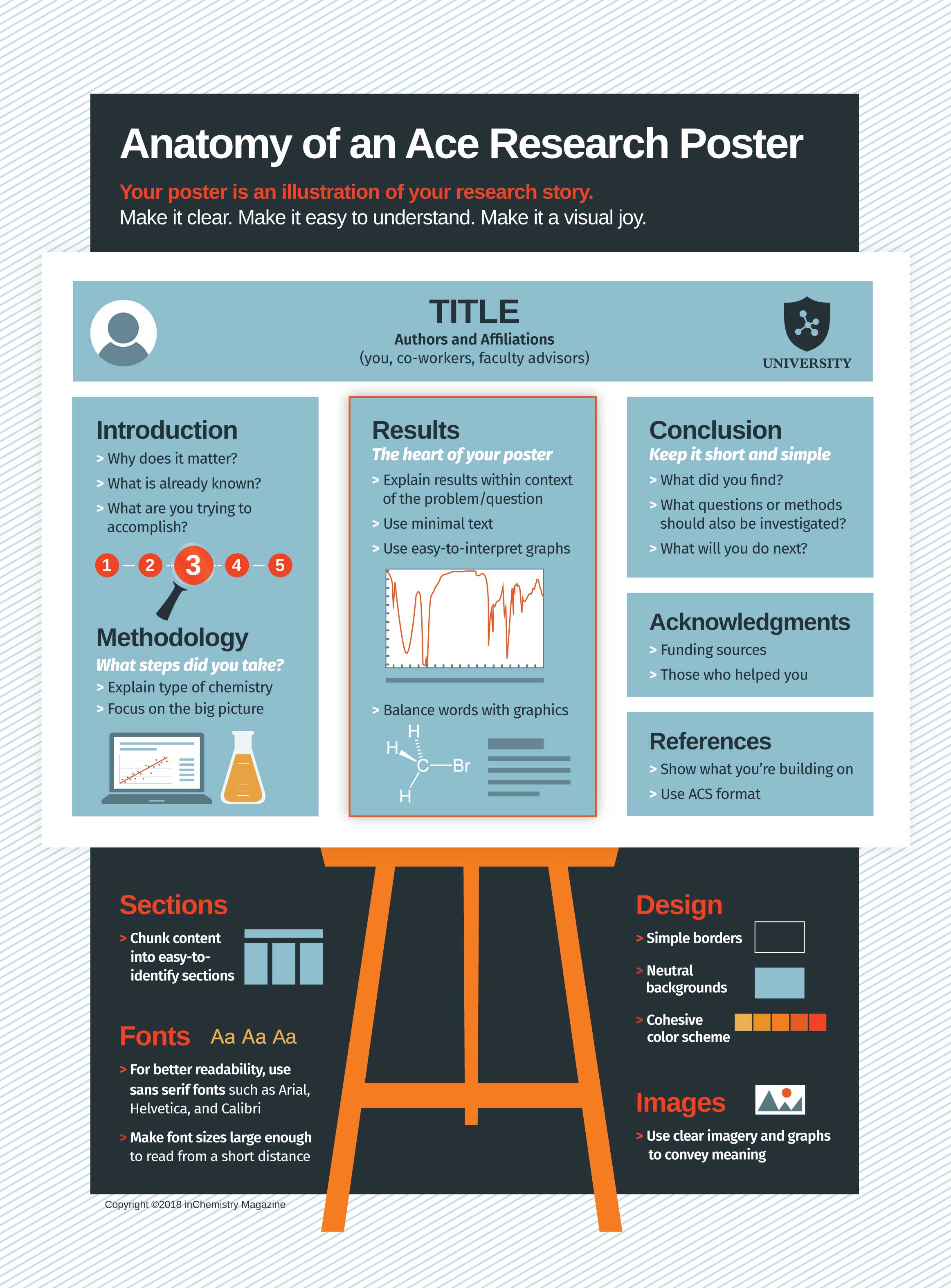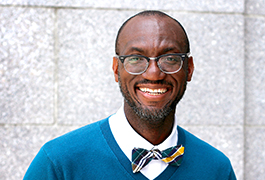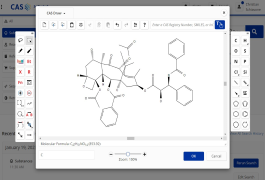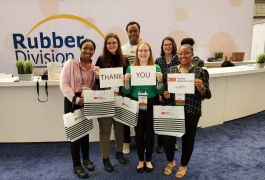Getting Ready for ACS Spring and Fall Meetings
Last updated 1/18/2024
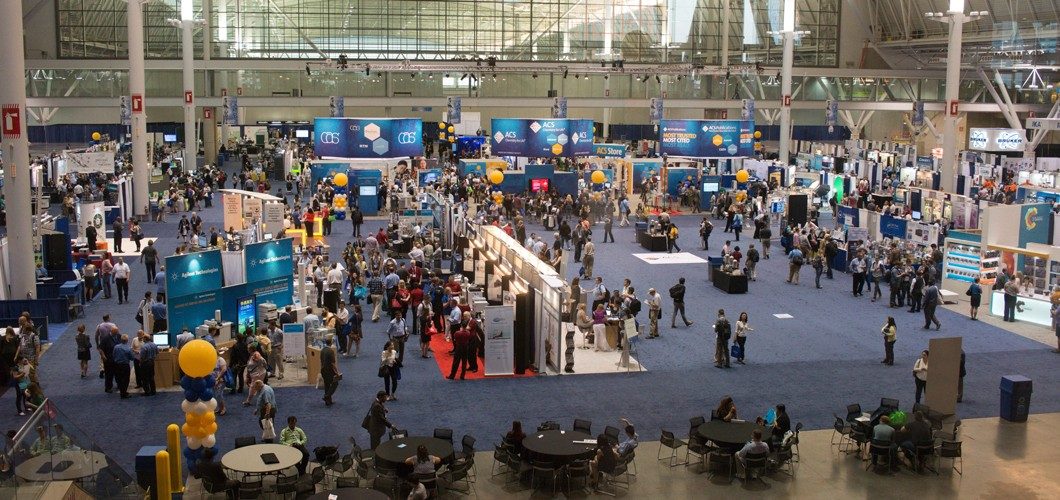
You may have heard that ACS meetings are great for professional development, but are you wondering what to do to make sure your own development happens? Here, we answer some common questions about how to take advantage of the opportunity, get the most out of the experience, and how to put your best (professional) foot forward.
What’s so special about the ACS Spring and Fall meetings?
ACS Spring and Fall meetings are two major technical meetings that ACS convenes every year. They draw as many as 18,000 attendees. Events are everywhere—the convention center, surrounding hotels, museums, and other major local venues. Meetings include scientific presentations, career workshops, networking events, socials, special lectures, award ceremonies, and much more! Some events, like the Expo (trade show) and Sci-Mix poster session, are huge, bustling events with large crowds, but most technical sessions are smaller (25–100 people). You might even get to see some famous chemists!
While ACS regional meetings target smaller communities, the large Spring and Fall meetings bring together students and professionals from around the world. It’s a great opportunity to meet future collaborators, colleagues, mentors, and employers. The trick is to be noticed for all the right reasons. This means your professionalism needs to be on display at all times.
Student Program
The ACS Spring 2024 student program will feature sessions on:
- What to expect in grad school
- Practicing green chemistry
- Careers outside of research
- ChemDemo Exchange
- Undergraduate reasearch poster session
- Eminent scientist lecture featuring André K. Isaacs (@DrDre4000) of the College of the Holy Cross
The program looks so overwhelming—where do I start?
ACS meetings have hundreds of sessions for every professional level and interest. It is impossible to attend every session that piques your interest. We recommend that you start with the Student Program, which features workshops on networking, career readiness, and graduate school, as well as technical programming for specifically for undergraduate students. The Student Program also includes a graduate school fair and a special lecture by a renowned scientist. Most of the program is in the Student Center on Sunday and Monday, where you can also meet and mingle with peers and program organizers.
To find sessions and events, search the technical program online to find people or topics that you might be interested in, whether it’s a potential graduate adviser or a research field that is intriguing to you. Whether they are in-person, virtual, or hybrid, the technical sessions are generally presentations by experts, for experts. If you have done independent research, search for experts in your field to find presentations you can follow more easily.
You can find additional programming for students by using the "Filter by themes" feature and selecting “students.” Be sure to look for social events (receptions, meals, socials) to meet professionals in your area of interest. You will get more out of the meeting if you are actively engaged in it, so find stuff and go!
Professional Conduct
The atmosphere at an ACS meeting tends to be relaxed, but remember it is a professional event. Generally, you want to act like your future employer is watching you, because they just might be. Moreover, maintaining professional manners helps create a more collegial atmosphere for everybody. ACS meetings are provided to support both scientific and professional growth, and you can do your part to make others comfortable by focusing conversations on science and career topics, and being positive, polite, and respectful.
The ACS Volunteer/National Meeting Attendee Conduct Policy requires all attendees to foster a positive environment built on trust, respect, open communications, and ethical behavior. ACS expects attendees to avoid inappropriate actions based on race, gender, age, religion, ethnicity, nationality, sexual orientation, gender expression, gender identity, marital status, political affiliation, presence of disabilities, or educational background.
If you feel that someone is being insulting, harassing, or using offensive language toward you or someone else, reach out to the nearest ACS staff member, email ACS Secretary Flint Lewis, or call 855-710-0009 (English) or 800-216-1288 (Spanish).
How do I set up my poster?
If you are presenting a poster, you will be assigned a poster board that is 4 ft tall by 6 ft wide (including the frame). Your poster must fit within those dimensions, and it’s a good idea to bring your own pushpins (buckets of pushpins are usually available but empty quickly). Many students take advantage of the large poster printers at their institutions and bring their posters rolled up in tubes. Be sure to bring a digital copy that you can print at a local office supply or print shop, in case of emergencies. If need be, you can print individual panes on letter-size paper and neatly tack those up. Your poster may not look as professional, but it is a workaround for emergency situations.
Every poster board will have a number that corresponds to the abstract number in the program. Once you find your board, it should only take 5 minutes to tack it up. You will have access to the room 60 minutes before the session start time. Please note: posters put up before the designated setup time will be removed.
Instructions for poster presenters (PDF)
As far as the layout and content of your poster, check out the Anatomy of an Ace Research Poster infographic for key information that should be included and layout tips. Remember that when you are presenting, figures and graphics are much better starting points for discussion than paragraphs. Use just enough text to support your visuals and be prepared to explain the rest orally. Everything on the poster should be large enough to read clearly from a few feet away.
What should I expect at my poster session?
A poster session is a place to share your science with others. Everyone who comes to view your poster is looking to hear about your research and learn about your discoveries. There will be fluctuations of high and low foot traffic, with some people simply reading your poster and others wanting to talk to you about it. Don’t judge yourself by how many people visit you; one or two meaningful conversations with good mentors can be more important than a bunch of students stopping by to say "hi."
If there is a lull in the foot traffic around your poster, it is absolutely appropriate to talk with the poster presenters around your poster. In fact, this is a great opportunity to practice your short research introduction with a peer! Just remember to stay on the lookout for people stopping by your poster.
How much should I share about my research?
The biggest challenge for many students is determining how much information to share with people. It is best to start small and expand if your audience wants to hear more or has questions. Be prepared to give a brief introduction (~ 1 minute) as to what you have done and why you did it. Many guests at your poster will start with, “Why don’t you tell me a little bit about your work?”
Bear in mind that there are a lot of posters to visit, so telling “a little bit” of information means be brief. Most successful poster presenters are those who can focus on the “take-home” messages of their research project and communicate those messages in a short amount of time. What did you do/study (in simple broad terms, one to three sentences)? Why should the listener care (again, one to three sentences)? Once you give a brief elevator speech about your project, you can gauge how much more your listener wants to know. Ask them if they want you to go into more detail about anything, or ask them questions about their background so that you know how specific you should be when answering additional questions.
My oral presentation is at 9:00 a.m., but I want to meet my friends afterward to go to the Expo. Can I leave when I’m done?
Congratulations on giving an oral presentation! This is a major accomplishment and opportunity for you to present your research. Oral sessions are conducted in blocks of four or five 10-minute talks (40–50 minutes) with short intermissions in between each block. As a presenter, you need to arrive either at the start of the session or during the break immediately preceding your block. Be sure to introduce yourself to the chair of the session and other presenters, and load your presentation onto the computer.
And, yes, it is a good practice for you (and the rest of your squad) to stay after your talk, at least until the next intermission. Not only will you have the opportunity to learn about some other high-caliber research projects, but this is also a way to show support for and camaraderie with the other presenters in your block.
I heard there’s free food and drink. Is this true?
There are definitely events at ACS meetings that offer refreshments, including the Student Program. Snacks and drinks are available at the Student Center (mornings only), some of the student workshops, most socials, and the grad school fair.
The Sci-Mix poster session (and some socials) also has popcorn and provides two drink tickets. Just remember that Sci-Mix, like all social events at professional meetings, is intended to promote networking and social interactions with a diverse array of presenters and disciplines.
Trying to present a poster or network while inebriated (or with a mouthful of food) looks bad. Potential future employers and colleagues are everywhere. You should know your limit or avoid drinking alcohol in order to put your best foot forward.
Can I enter a talk late?
Sure, you can enter a talk late, but be discreet. Enter quietly, open doors slowly (you don’t want to knock into anyone near the door), and close the door gently (they tend to slam). Slip into an available chair, if you can do it without climbing over anyone; otherwise, move to the side of the room. Once the speaker has finished, you can look around and quickly find a seat before the next speaker starts. Likewise, if you see an attendee come in late and you can easily scooch over to free up a seat, please do so.
I’m so excited to see a talk by [renowned chemist’s name]. Can I ask them a question during or after their talk?
Absolutely! Here are some tips:
- Save your question for the end when the speaker asks for questions.
- Speak loudly and enunciate your words so that the speaker, moderator, and others in the audience can hear your question clearly the first time.
- Keep your question short and focused on the topics covered in the talk.
- Ask them something that only they, or a similar expert, would know the answer to, as opposed to general chemistry questions or questions outside their field.
You also can meet with a speaker after their talk. If there is a small crowd of people asking questions, politely ask your question as time permits. If the speaker needs to rush off, ask if you can contact them by email later, and be sure to follow up on your request.
One of the best things about attending an ACS technical meeting is the sudden realization that you are not alone. There are literally thousands of people who have the same passion for chemistry that you have. It is exhilarating to discover all the shared experiences—the first time leaving lab with your goggles on, late nights in the library, surviving p-chem. Battle stories from labs gone by (Grignard reaction, anyone?) are always great for a groan and a laugh.
You will discover that the “geekier” you are and the more you enjoy chemistry as a field and as your major, the more you will fit in, which is thrilling. The consensus from students who have come before you is that their first ACS meeting was a turning point in their professional lives. Taking this important step toward your education, career, and future as a member of the professional chemical community will surely be unforgettable. We hope that your experience at your first technical meeting is positive and meaningful, and we look forward to seeing you there!
What should I wear? Do I need to buy a suit?
The general dress code for professional conferences is business or business casual. Slacks, a skirt or dress, and a professional top (button-down, blouse, or sweater) are all safe choices. You don’t have to sacrifice your personal style, but you should avoid clothing and footwear that’s too casual or too revealing (e.g., ripped jeans, cropped tops, sandals, and flip-flops).
For posters and oral presentations, it’s best to dress in professional attire—a suit or matched separates. This is your time to impress people with a look that says, “I’m ready to work.”
Here are some tips for conference attire on a budget:
- Thrift and consignment shops are great places to pick up suits, blazers, or other professional clothing on a tight budget. Most dry cleaners offer budget-friendly alterations services for that all-important, well-tailored fit.
- Be sure to wear comfortable, supportive shoes. You will be walking a lot on concrete floors and pavement, so be sure to break in your shoes before the meeting.
- Make sure to have a sturdy, lightweight bag that you can easily carry around all day for your notebook, water bottle, extra mask/shoes, and, of course, all the swag you’ll pick up at the Expo and events!

